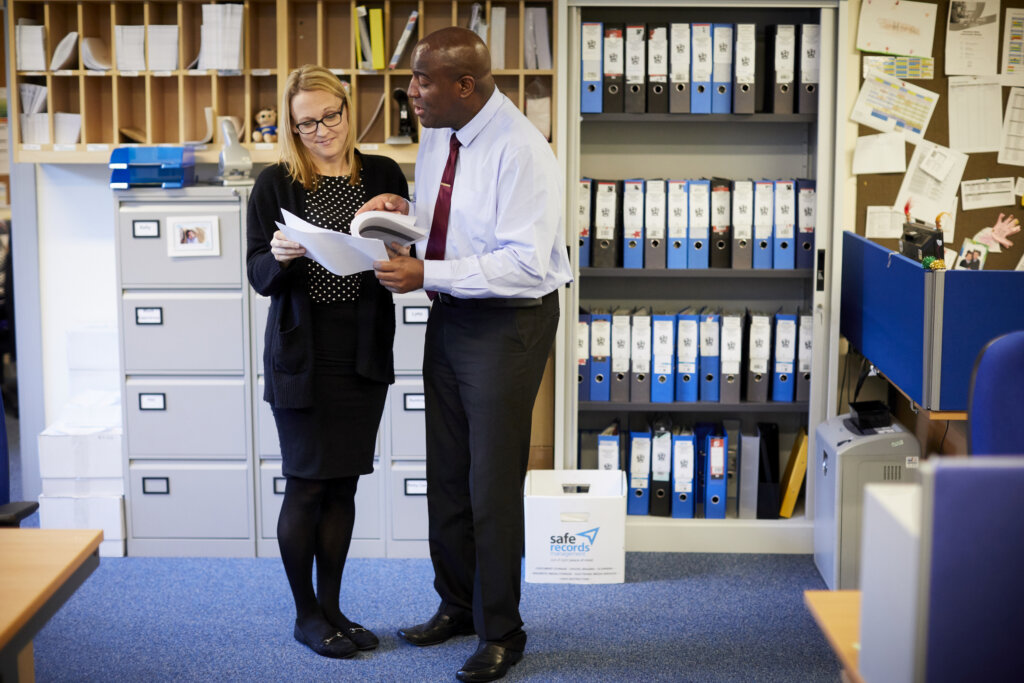Political Bias & Bafflement
New guidance from the Department of Education calls for political impartiality in the classroom, in order to help students form their own opinions and prepare for later life. Whilst no topics are off-limits, the government explains that educators should avoid promoting partisan views and positing contested theories as facts. For example, when teaching about racism, teachers should be clear it has no place in British society. However, new guidance states that teachers must also avoid advocating for specific campaigns such as the Black Lives Matter movement, which holds partisan views on the allocation of government resources and funds. Instead, schools must offer pupils a balanced account of alternating perspectives. The guidance offers other scenarios to reiterate the same principles, using climate change, global trade, and equity between the sexes as examples.
Although the guidance is clear that educators should not promote their own views on political issues, it does not specify what exactly constitutes a political issue, leaving it up to school leaders and teachers to decide. Unions have argued that rather than giving clarity to existing guidance, the government has only added ‘new layers of mystification and complexity to it.’ Dr Mary Bousted, joint secretary of the National Education Union, elaborates that the ‘34-page game of obfuscation’ will ultimately deprive students of opportunities to engage in the most challenging issues of our time. However, the Department of Education insists that they want teachers to be able to discuss current affairs with their pupils, and the guidance is designed to support those discussions in a way that simply ‘separates out political views from the issues themselves.’
Schools Beware the “Baby Bust”
In 2020, fertility rates for England and Wales fell to 1.58 children per woman, the lowest since records began. This is hardly surprising, following the pressures and isolation of lockdowns – however fertility rates have been in steady decline long before the pandemic arrived. Whilst all aspects of society will inevitably have to adapt to the “baby bust” phenomenon, schools are among the first to feel the impact. In as soon as five years time, pupil numbers in primary schools are projected to fall by 300,000, as children born during the 2000’s population bulge move onto secondary education. As a result, councils are already reducing school capacity and preparing for staff cuts.
As surplus places surge and school budgets contract, it is easy to see how pupils may suffer. Gerald Clark, secretary of the National Education Union in Camden, surmises, ‘ultimately, a school has to have one teacher in front of thirty children. If that is your bare minimum calculation, I think some schools are thinking, “Let’s put that in and anything else is just a bonus.”’ Others warn it is not just squeezed budgets and staff redundancies that schools will be forced to contend with, but also compressed year groups and larger class sizes; less collaboration between schools and more competition; even the prospect of school closures.
However, if the government maintained existing funding, some believe that the “baby bust” could be a new window of opportunity for enhancing school provision. By reconfiguring empty classrooms, pupils could benefit from access to new music halls, breakout rooms, and of course school libraries, which Children’s Laureate, Cressida Cowell, campaigned for last year. Another opportunity would be building integrated and alternative provision into the school estate, increasing support for children at risk of exclusion, as well as spaces for SEND provision. Whilst many teachers have the skills and the vision, it remains to be seen whether they will receive the necessary support to “refurbish” education.
The Collapse of CAMHS
As mental health support systems collapse across the country, schools without the sufficient funds for psychologists or counsellors have been left to “plug the gap” themselves. Families with children who are suicidal, have self-harmed, or suffering from an eating disorder, have found that their CAMHS referrals have been rejected, or face two-year waiting lists for assessment. Instead of receiving therapy and specialised services, children are being sent back to school with the expectation that teachers should “keep them safe.” But, as one headteacher explains, ‘we do not have the expertise at a CAMHS level to be able to do that.’ With the added pressure of attendance targets and exam results, the crisis has driven a rift between some families and schools, with incidents of parents even being accused of fabricating their child’s illness.
The devastating effects of this crisis have been revealed in a four-month investigation conducted by Schools Week. In eleven out of the twelve NHS trusts investigated, hospital admissions for children with mental health problems increased between 2009 and 2019. Since the aftermath of Covid, the amount of children with probable mental health conditions has jumped even further, from eleven to sixteen percent as of 2021. Professionals have called for a variety of solutions, including early interventions, practical staff training, increasing placements in specialist schools, and the roll out of mental health teams to educational settings. However, many of these solutions are proving slow to materialise. In the meantime, the mental health charity Young Minds offers schools the following advice:
- Always refer pupils for mental health support as soon as possible.
- Encourage all school staff to fulfil their roles as “trusted adults.”
- Ensure the voices of children are heard when developing plans and policies.
- Be flexible and creative with attendance.
- Check-in with parents regularly and remind them that they are not failures.
Whilst the challenges we face as a sector can seem overwhelming, it is important to remember the maxim that “in the midst of every crisis, lies great opportunity.” Occasionally, it takes looking at an issue through a different lens in order to find a solution. In order to provide our children with the best chances and capabilities to succeed, we must always strive to expand our vision.












